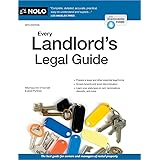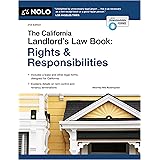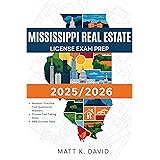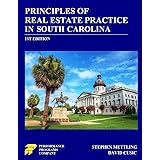The decision to sell a house can be one of life’s more significant undertakings. This complex and often time-consuming journey can feel overwhelming to many homeowners. Fortunately, the process can be made smoother and more manageable with the right professional guidance. As thoughtfully demonstrated in the video above, securing the assistance of a dedicated real estate broker is frequently considered the ideal solution for those looking to successfully sell a house.
When selling a house, numerous steps must be navigated, from initial preparation to the final contract signing. Understanding each phase helps demystify what often seems like a complicated endeavor. This guide will expand upon the foundational insights presented in the video, offering a clear, step-by-step breakdown of the typical house selling process.
Engaging a Real Estate Broker for Your Home Sale
The initial step in selling a house is often the decision to hire a real estate broker. Individuals, such as Jim Chen in the dialogue, recognize that expert assistance is needed when they are unfamiliar with the selling process or lack sufficient time. A qualified broker serves as a central guide, offering invaluable expertise throughout the transaction.
A reputable real estate agency, like One Mount Properties mentioned, provides a range of services designed to alleviate the burden on sellers. These professionals are entrusted with many responsibilities, ensuring that the process is handled efficiently. The broker’s role extends beyond merely listing a property; comprehensive support is provided from start to finish.
Initial Consultation and Property Assessment
Upon initial contact, information about the property is typically gathered. Details such as the number of beds and baths, location, and the desired selling price are usually discussed. This early conversation allows the broker to gain a preliminary understanding of the home’s characteristics. For instance, Jim Chen’s two-bed, two-bath house in West Philly was initially introduced with a target price of $650,000, which was later identified as potentially high for the market.
A physical viewing of the house is always required before any definitive decisions about pricing or strategy are made. During this visit, the broker assesses the condition of the home, noting its unique features and potential areas for improvement. This on-site evaluation is critical for formulating an accurate and competitive market analysis.
Strategic Marketing for Your Property
Once the broker has thoroughly assessed the property, the marketing phase begins. Effective marketing ensures that the house reaches a broad audience of potential buyers. This stage is crucial for generating interest and securing showings.
The broker will coordinate various marketing activities to present the home in its best light. Professional photography is often arranged, and compelling descriptions are crafted for online listings and promotional materials. The goal is to capture the essence of the home, much like a beautiful advertisement designed to attract immediate attention.
Preparing Your House for Sale
Before a house is officially listed or shown, certain preparations are highly recommended. These home upgrades, as suggested by Broker Harris, are designed to enhance the property’s appeal. Minor repairs and cosmetic improvements can significantly impact how a home is perceived by prospective buyers.
Suggestions frequently include cleaning visible stains, refreshing tired carpets, or upgrading light bulbs to brighten rooms. These small adjustments can make spaces appear larger and more inviting, creating a positive first impression. Think of it as preparing a meal; even the best ingredients benefit from careful presentation. This process, often referred to as staging, helps buyers envision themselves living in the home.
Setting a Realistic and Competitive Price
One of the most critical aspects of selling a house is determining the right price. This decision is influenced by various factors, including the home’s condition, location, and the current market value of comparable properties in the area. A skilled broker conducts a detailed market analysis to recommend an appropriate listing price.
It is often suggested that a suitable price is established from the outset. While sellers might initially consider setting a higher price with the expectation of negotiation, this strategy can sometimes deter potential buyers. If a price is too high, many interested parties might simply overlook the listing, viewing it as outside their budget or overpriced compared to other options. This approach helps to prevent the property from languishing on the market, which can often lead to eventual price reductions.
The Art of Price Negotiation
When offers are received, the negotiation process begins. Buyers often propose a price lower than the asking price, and this is where the broker’s experience becomes invaluable. For example, Jim’s initial goal of $650,000 was adjusted to $580,000 based on market realities, and then further negotiated to $570,000 to secure a prompt sale.
The broker acts as an intermediary, facilitating communication between the seller and buyer. Their role involves presenting offers, counter-offers, and advocating for the seller’s interests. The objective is to achieve a mutually agreeable price and terms, ensuring that the seller’s financial goals are met while appealing to serious buyers.
Managing Showings and Buyer Interactions
Once the house is ready and priced, showings are scheduled with potential buyers. These visits are carefully managed by the broker, ensuring convenience for the seller and an optimal viewing experience for the buyers. Sellers are often advised to be absent during these showings, allowing buyers to explore the home freely and discuss it openly with their agent.
Before each showing, it is generally recommended that the house be thoroughly cleaned and tidied. Personal valuables should also be secured. This level of preparation ensures that the property always makes the best possible impression, allowing buyers to focus on the home itself rather than any clutter or distractions. The broker often holds keys and handles access, simplifying logistics for the homeowner.
The Contract and Closing Process
When an offer is accepted, the process moves towards signing a contract. This comprehensive document outlines all the terms and conditions of the sale, including the price, closing date, and any contingencies. The real estate broker meticulously handles all the required paperwork, ensuring that every detail is accurately recorded and legally sound.
Broker Harris, for instance, mentioned taking care of “everything from A to Z,” including preparing the contract and managing all necessary documentation. This administrative burden is significant, and having an experienced professional oversee it helps prevent errors and ensures a smooth transaction. Commission fees, such as the 2% mentioned in the transcript, are also clearly outlined in this contract, ensuring transparency about the cost of services.
After the contract is signed, various tasks are completed before the final closing, which marks the official transfer of ownership. This typically includes inspections, appraisals, and legal reviews. The broker continues to facilitate these steps, addressing any issues that may arise and guiding the seller toward a successful completion of the home sale.









